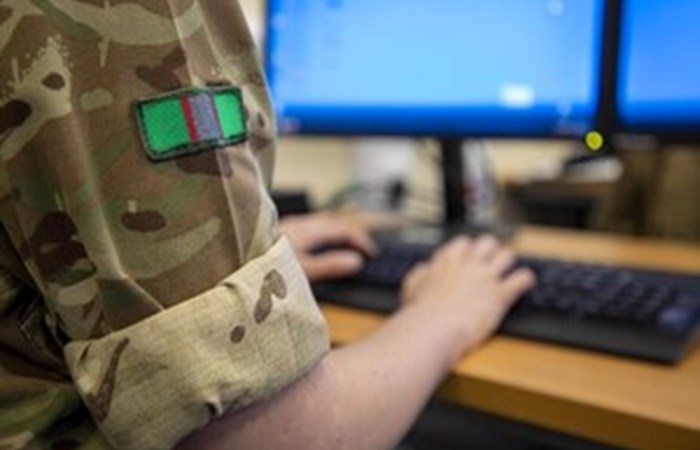Ministry Of Defence

The Defence Centre for Languages and Culture (DCLC) has been a cornerstone of the Defence Academy since its relocation to Shrivenham Station from Beaconsfield in 2014. By delivering language and cultural awareness training to British and international defence personnel, the centre plays a crucial role in supporting operations, intelligence and defence engagement. DCLC is well-equipped to prepare British personnel for study at the world-renowned cole de Guerre.
Each year, five British defence personnel study at DCLC to learn or develop their French language skills prior to attending the Joint Services Command and Staff Colleges French equivalent - cole de Guerre.
The path to cole de Guerre is challenging, but certainly worthwhile. The UK candidate officers need to get their French language skills to a level at which they can be admitted to the prestigious institution and actively engage in the learning and development that takes place there. They need to be able to study and participate in classes, conferences and deployments like native French speakers.
When a UK officer arrives at the cole de Guerre, their written proficiency needs to be to the level of someone with a Masters degree in French.However, the challenge does not end there: They also need to pass the Mess Test .
The divergence between the written forms of French and the spoken forms grows year by year, and a British officer at the cole de Guerre needs to be able to use informal registers when speaking to fellow officers in the mess. This will help them not only with their formal military education, but also with total immersion into their environment. Set against a backdrop of more than 100 bilateral agreements between the UK and France, building relationships with their French colleagues and other international partners can help British officers challenge their assumptions and biases, exchange knowledge and best practice, and see a bigger, more international picture.
Former cole de Guerre student, Commander Alexander Westley, said:
At cole de Guerre, I joined a diverse cadres of officers hailing from 66 different countries. We were all united by a common language and the shared goal of enhancing our command and staff capabilities. The solid linguistic foundation I gained at DCLC was instrumental in maximising my experience at cole de Guerre and in France. It removed the constant concern of communication barriers, allowing me to focus on the academic and strategic aspects of the course.
The skills acquired at DCLC, did not just serve me well during my time at cole de Guerre; they allowed me to build on what I had learnt and continue my career in France, within the Office of the Head of the French Navy. A role where linguistic competence, combined with a deep understanding of the Franco-British relationship, is not just beneficial it is imperative.
Former cole de Guerre student, Wing Commander Suzanne McLaughlin, said:
The course - and its immersion element - are clearly so important to receive a foundation in the language and culture of the French. The scenario-based learning helps bring elements of the military language out early on and helps build confidence when arriving at the Ecole de Guerre.
She added:
The flexibility of the DCLC to support students means that the learning experience is positive and balanced. Alongside this, the variety of teaching styles works across the spectrum of learning styles and previous language experience.
Since its creation, DCLC has been the one of the main language and culture training providers for Defence, teaching between 40 to 80 languages to approximately 300 students each year.
DCLC is separated into two departments: its English Language Wing (ELW) delivers courses in English to a wide range of overseas defence students on standard and tailored courses. At the same time, its Foreign Language Wing (FLW) provides core and bespoke language training to long-term allies of the UK. The core language portfolio includes French, Arabic, Russian, Mandarin (Chinese) and Spanish.
Visit the DCLC website<
